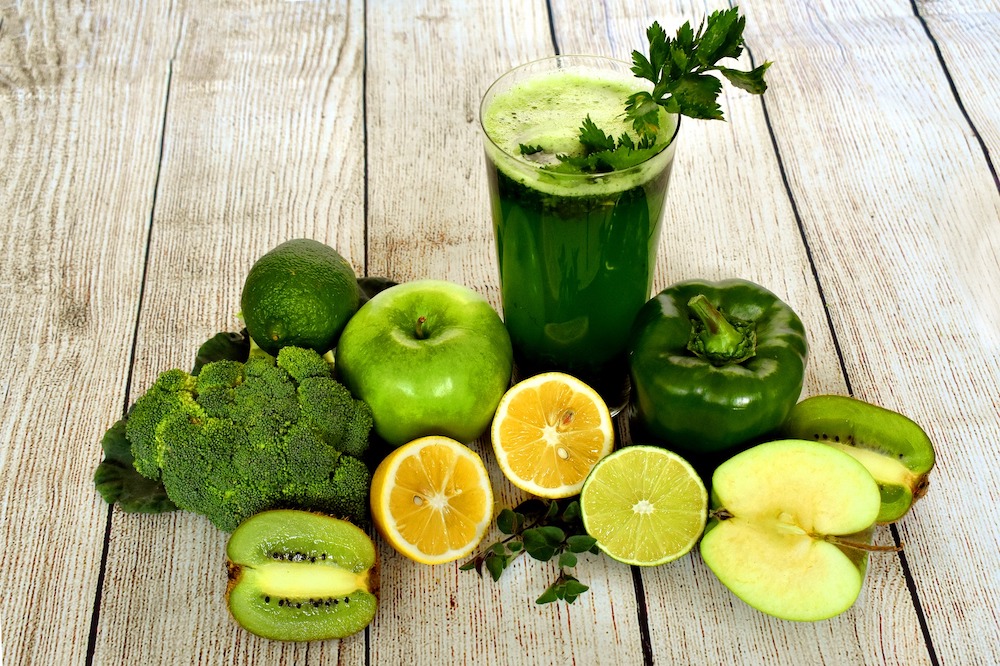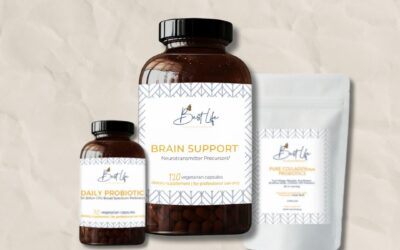There are tiny compounds found in many plant food sources that make up a plant’s natural defense system and are a normal part of a plant’s evolution.
When it comes to these compounds, there are a few things worth knowing especially if you are vegan, vegetarian or over-consuming raw vegetables in general AND you are experiencing chronic and unexplained digestive problems.
In this blog post, I’ll dive into what these compounds are (a.k.a anti-nutrients) and explain their effect on gut health.
I’ll also give tips at the end on reducing anti-nutrients through preparation and cooking techniques to minimize digestive damage and increase absorption, especially when it comes to holding on to those important minerals our bodies need!
Disclaimer: This post is not meant to discourage plant-based consumption or to claim that eating plant based foods like vegetables and grains are unhealthy. It’s important to note there is no one-size-fits-all approach to nutrition and dietary needs. Everybody will need different requirements and experience different reactions based on genetics, health status, age, environment, activity level, etc.
What are Anti-Nutrients anyway?
An anti-nutrient is a little compound that reduces the body’s ability to absorb essential nutrients like minerals. Anti-nutrients protect the plant from bacterial infections and from being eaten by predators. When we think of this from an ecological standpoint, plants can’t run from predators, but animals and humans can!
If a predator were to eat a plant accidentally, that predator would become sick and learn to stay away and not eat the plant again. Having coexisted with animals over time caused this phenomenon to occur naturally. Of course, some animals do eat and thrive off of plant sources, but it’s important to note their GI tracts are built to digest and break down the tough, fibrous parts of the plant.
With that said, anti-nutrients have evolved to become a natural part of the plant’s defense mechanism. Why? Because just like animals and humans, plants too want to reproduce. This is a well-known and instinctual process. When I first heard this, I thought to myself: how often do we think of plants needing to protect themselves or reproduce? It certainly never crossed my mind.
But Aren’t Plants Full Of The Good Nutrients We Need?
Yes! Plant sources are LOADED with nutrition, and some carry more nutrients than others. Sources like vegetables, legumes, nuts, seeds, and certain grains are packed with protein, fiber, vitamins, minerals, antioxidants, and phytonutrients. Naturally, our bodies want these things to function correctly. But, the question is how much of those nutrients are getting absorbed in the GI tract with the presence of anti-nutrients? This will depend on two factors: bio-individuality and bioavailability.
Bio-individuality takes into account that everyone is different, from their genes to their environment, to their age and activity level, and that each person will need certain nutritional requirements based on those unique factors. Bio-availability, on the other hand, is how well your GI tract is equipped to absorb essential nutrients and how many of those nutrients get utilized by the body to support you.
Let’s use spinach as an example to understand bioavailability. Spinach is full of vitamin A, vitamin C, calcium, iron, magnesium, and much more. When you look at its nutrient density, the iron in spinach is great compared to the iron in a steak. But did you know that spinach is also high in oxalates, an anti-nutrient that blocks the absorption of certain minerals? Unfortunately, this can be problematic for some individuals, especially when eaten raw, in high quantities, and for long periods.
Additionally, if you or someone you know has ever undergone kidney surgery, it’s very common for doctors to prescribe a low-oxalate diet. Why? Because foods high in oxalates (like spinach) will cause minerals like calcium to build up over time and form crystals leading to more kidney stones!
Given a plant’s defendant nature, what part of its structure does it want you to eat? That’s the fruit. Plants will store anti-nutrients in vital parts of their structure, including the seeds, skin, leaves, bark, and roots. However, these compounds are less found in the fruit, making fruit more digestible and less problematic for human consumption.
The Top 5 Anti-Nutrients To Know About
Lectins
Lectins are naturally occurring proteins found in legumes (beans, peanuts, soybeans) and whole grains (wheat). They can interfere with nutrient digestion and absorption of certain minerals, calcium, iron, phosphorus, and zinc. They’re also notorious for surviving the GI tract. When over-consuming too many lectin-rich foods that are loaded with proteins, these proteins can bind to the cells in your gut wall and puncture it. They can also change the bacterial flora. All of this can lead to a leaky gut over time and a host of other autoimmune triggers.
Oxalates
Oxalates can mainly be found in dark green leafy vegetables like spinach or things like almonds, sesame seeds, teas, and soybeans. They bind to calcium and iron and prevent their absorption, causing muscle pain. Likewise, unused calcium can accumulate in the kidney and cause kidney stones.
Oxalates are also enzyme inhibitors. They can prevent proper digestion, creating gut problems and protein deficiencies. Why are enzymes so important for gut health? Well, they create chemical reactions that support our bodies to function correctly and are especially important in the digestive process. Without enzymes to properly metabolize food, GI issues can occur, such as bloating and constipation.
Phytates
Phytates (also known as phytic acid) are primarily found in the hulls of whole grains, legumes, seeds, and some nuts. Phytates bind to essential dietary minerals, including calcium, magnesium, iron, phosphorus, copper, and zinc
Glucosinolates (also known as goitrogens)
Glucosinolates, also known as goitrogens, are mainly found in cruciferous vegetables like broccoli, kale, and Brussel sprouts. When eating these plant sources raw and in excessive amounts, goitrogens can interfere with the absorption of iodine over time causing thyroid dysfunction. If you are getting enough zinc, selenium, and iodine in your diet (all thyroid-supporting minerals) and consuming raw cruciferous vegetables occasionally and mainly cooking your cruciferous veggies, the goitrogens probably won’t have much of an effect on you.
Tannins
Tannins, mainly found in coffee, teas, wines, and legumes, are similar to oxalates as they also act as enzyme inhibitors and can interfere with iron absorption. Did you know that without enough iron intake or iron in our storage reserves, we can put our thyroid health at risk? Just like with iodine, our thyroid needs iron to support it too.
Should We Be Worried?
At this point, you’re probably seeing a pattern with legumes and grains and why anti-nutrients can be problematic for some individuals especially when it comes to digesting, absorbing, and utilizing these minerals. We also need to ask ourselves: why are our minerals so essential to health in the first place?
Minerals (just like vitamins) are crucial for optimized health. We just don’t get enough of them in our modern diet today. Our body will rely on and use up minerals to carry out multiple functions for our bones, muscles, heart, and brain. They are crucial for thyroid health and making enzymes and hormones. The list can go on.
In general, it is estimated that around 2 billion people of the world’s population are not getting adequate mineral intake from food. One reason for this is due to mineral depletion in our soil. Another is due to contamination with heavy metals absorbed by plants that end up in our food chain. So now, we have a 3rd plausible reason to look at: anti-nutrients in plants.
In general, plant toxicity (a.k.a the presence of anti-nutrients) should be viewed on a spectrum ranging from least harmful to the most harmful. Where you fall on that spectrum will entirely depend on your bio-individuality and current state of digestion along with how well you absorb nutrients and how well you prepare certain plant foods.
Tips for Reducing Anti-Nutrients in Plant Sources
There are several ways to prepare plants sources that are high in anti-nutrients to minimize their impact on gut health. While it’s impossible to get rid of them 100%, with a few preparation and cooking techniques, you can still get the job done to reap the benefits of eating plant foods! Here are a few ways to approach this:
Legumes, nuts, seeds: If buying raw, it’s best to soak these in water for at least up to 3 days. You’ll want to make sure to change the water frequently – that’s where the anti-nutrients end up. After the soaking process, it’s best to boil legumes until fully cooked and drain any excess water. For nuts and seeds, it’s best to roast them for at least 30-45min after soaking and drying.
Dark Leafy Greens & Other Vegetables: Best to steam or roast veggies as much as possible. While eating a raw veggie salad here and there won’t be detrimental to your health, consuming more cooked vegetables will make our digestive system’s job easier and allow us to hold onto more nutrients including those precious minerals.
Here’s are some other tips:
- Most nutrients in vegetables are fat-soluble, meaning that to absorb them effectively, we need to consume and pair them with good-fat foods like olive oil, avocado, butter, grass-fed cheese, ghee, or tallow. This will help increase bioavailability.
- If you must eat raw veggies, like kale or cabbage, it’s best to massage the leaves with vinegar or lemon juice. This helps break down their tough and fibrous structure for easier digestion and absorption. For those with Thyroid disorders, eating too many raw cruciferous veggies can interfere with iodine absorption over time UNLESS you are getting adequate levels of zinc, selenium, iodine, and magnesium in your diet.
- The timing of when you eat plant sources and what you eat them with is also important. For example, I’d probably avoid eating red meat, fatty fish, or another nutrient-dense protein source will a big bowl of raw spinach or kale salad.
- The levels of anti-nutrients will be more prevalent in certain vegetables than others. For example, things like cucumber, squash, avocado, olive, and even lettuce are considered to have the least amount of anti-nutrients compared to more nutrient-dense ones like kale, swiss chard, tomatoes, or spinach. Remember: the more nutrition a plant has, the more anti-nutrients it will carry in order to protect the good nutrients.
A Final Word
While they can be problematic, anti-nutrients are nothing to be concerned about as long as they aren’t overeating legumes, nuts, seeds, grain, and certain veggies, especially raw veggies. Bottom line: if you are regularly eating plant sources or following a strictly plant-based diet and thriving, then, by all means, don’t change anything.
But, if you aren’t feeling great or on the fence about what might be happening inside your gut, I hope this information helps guide you in the direction you’d like to go. Optimal health starts and ends with optimal gut health!
Written by Health Coach Lydia, NBC-HWC
P.S — Register for Dr. Libby’s 16-week program The Gut Restoration. This program will test/optimize your gut health, kill the bad guys, support the guys, and fortify your gut lining! You’ll also learn about what to eat and what to limit for a flourishing gut.





